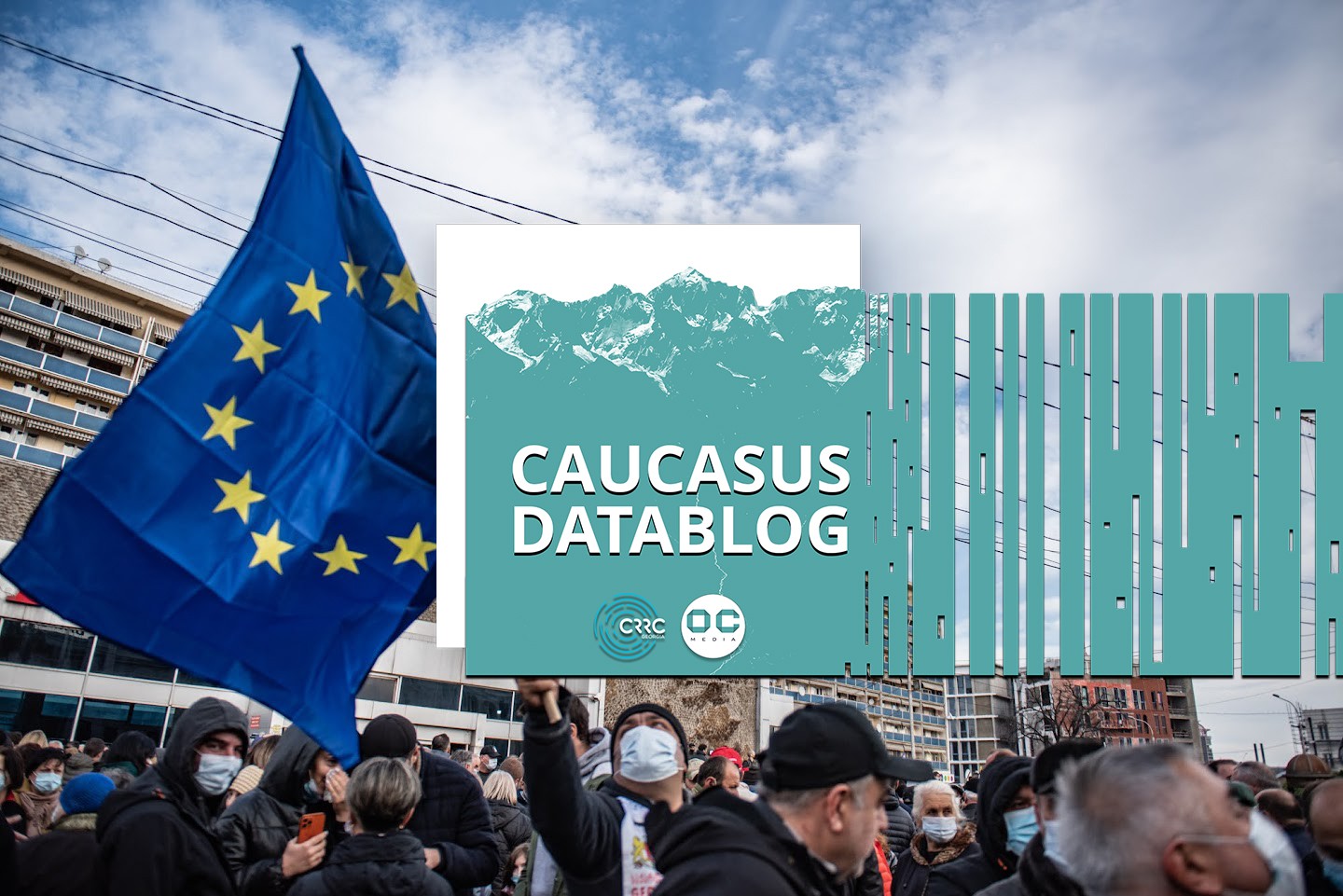
The Georgian Government officially applied for EU membership on 3 March 2022, after previously not planning to do so until 2024. With scepticism from some about whether Georgia is ready for the process, we look at how Georgia’s democracy compares with other countries granted candidate status or admitted to the EU in the past 20 years.
The government’s decision to bring forward their application was spurred by Ukraine’s application several days prior as well as mounting pressure from Georgian society.
Despite the extraordinary circumstances, some argue that full integration could take decades unless standards for accession to the EU are lowered.
Countries aspiring to become EU members must meet several demanding criteria to be considered eligible for membership, known as the Copenhagen criteria. These can be categorised into three groups: (1) political criteria largely relating to democracy, the rule of law, and human rights, (2) economic criteria, and (3) administrative and institutional capacity.
Georgia, alongside Ukraine and Moldova, is now waiting for the EU to either grant them candidate status or reject their application, which would be a major blow for Georgia’s EU aspirations.
According to data from Freedom House and Varieties of Democracy, all of the countries that became EU member states during the last two decades had a higher level of democracy when they were granted candidate status than Georgia does in 2022.
However, Georgia has higher democracy scores than other countries granted candidate status which have not yet become EU member states.
Georgia vs countries that became EU members in the last two decades
Freedom House scores suggest that all the countries that became EU members over the last two decades were more democratic during their application than Georgia in 2022 when applying for EU membership.
This observation holds for the moment these countries were granted candidate status and negotiations for accession were opened up until they officially became EU member states.
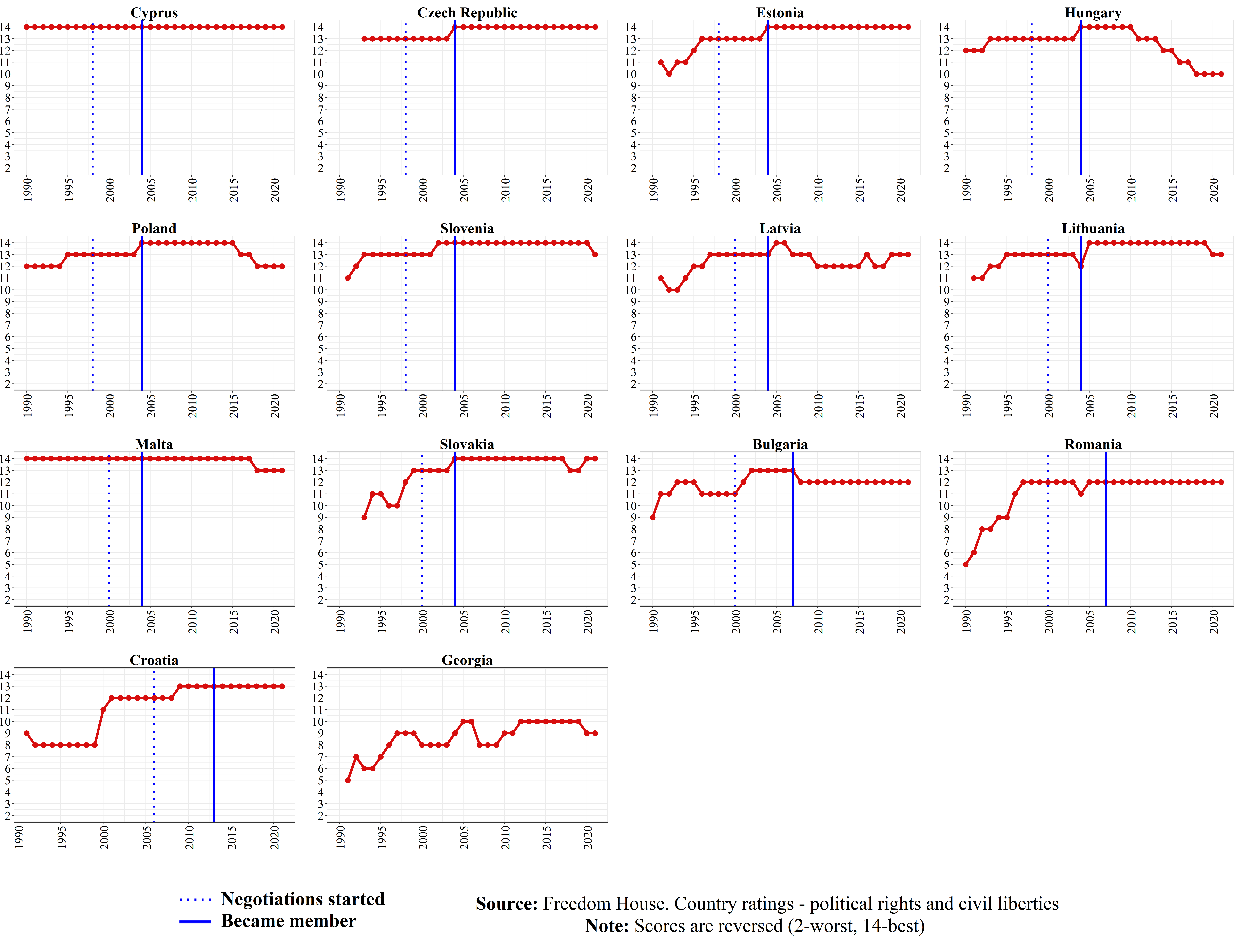
Data from the Varieties of Democracy project (V-Dem) suggest a slightly different picture.
According to V-Dem’s electoral democracy index, Georgia’s democracy in 2022 is similar to the level of electoral democracy of Bulgaria and Romania when they were granted candidate status as well as when they became members of the EU in 2007.
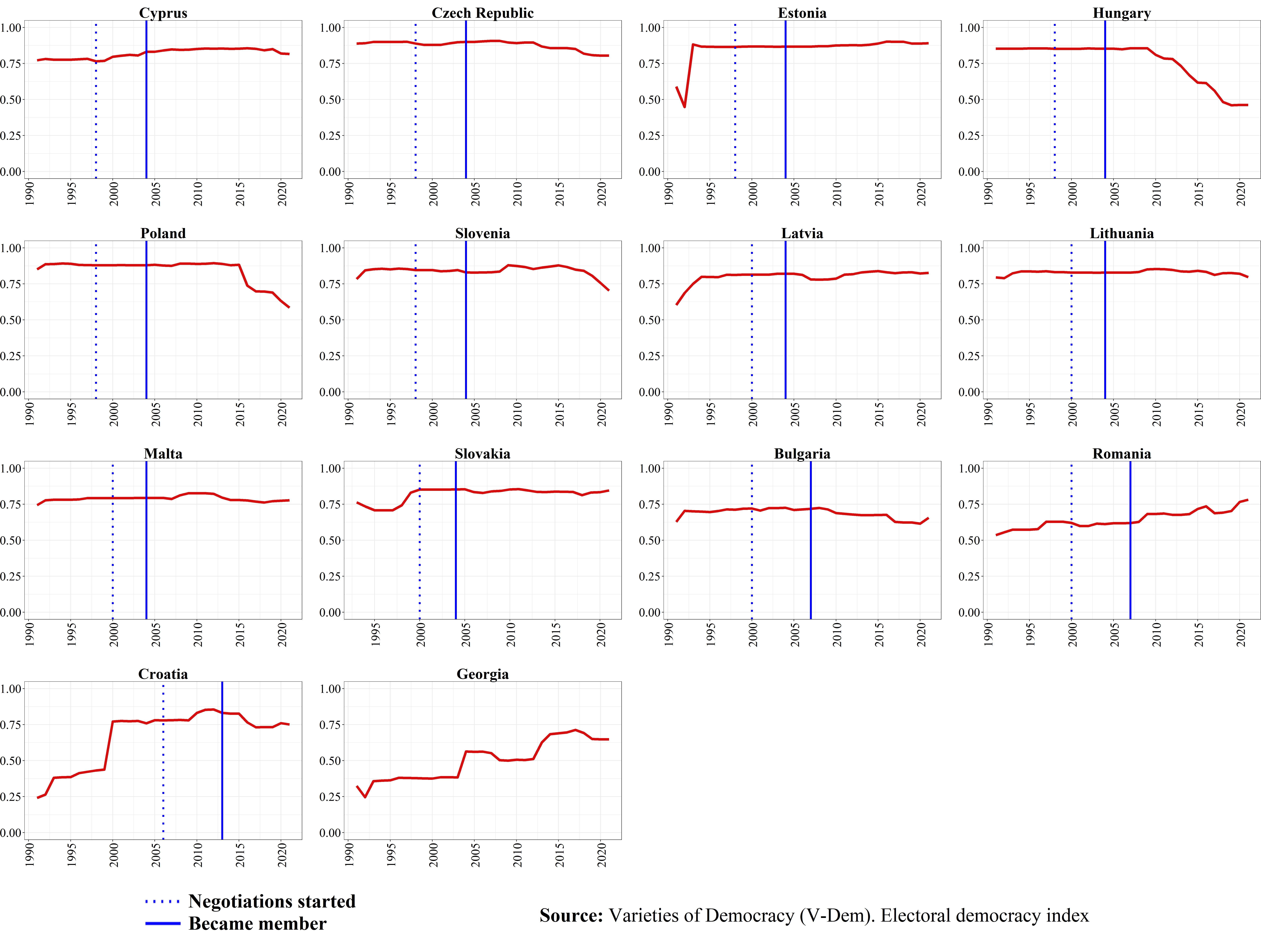
Moreover, Romania’s scores on the electoral democracy index when the EU opened accession negotiations with the country as well as when it became a full-fledged member of the union were slightly worse than Georgia’s scores on the same index in 2022.
The V-Dem dataset also contains a more demanding democracy index, known as the liberal democracy index. This index shows a similar picture. Romania is the only country that became a member of the EU in the 21st century that had lower scores on the liberal democracy index when the EU opened accession negotiations with it than Georgia in 2022.
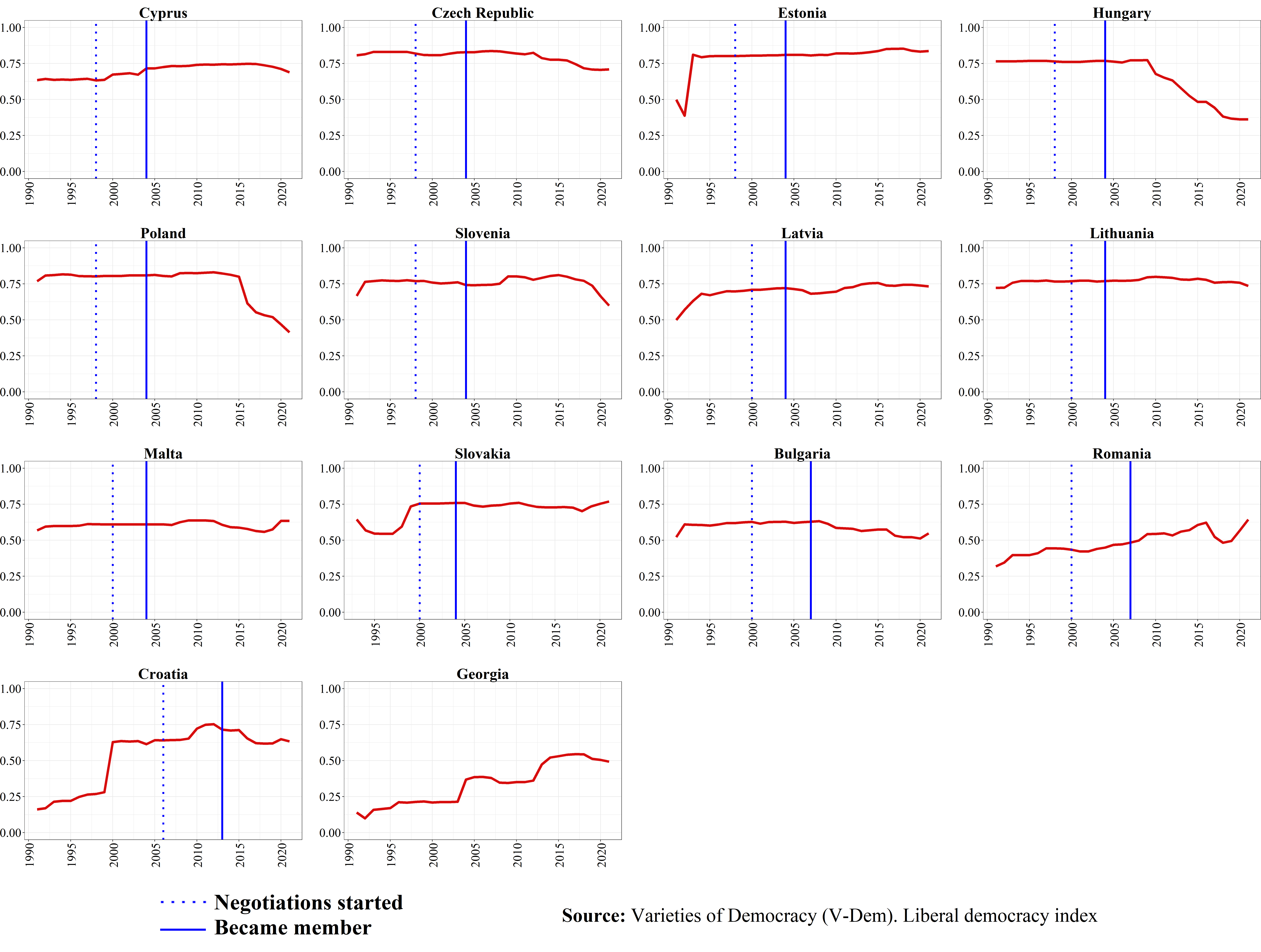
Georgia vs countries granted candidate status yet to join the EU
According to Freedom House, some of the countries that were offered the EU candidate status but are yet to become full-fledged members had comparable levels of democracy with Georgia during the period when the EU granted them candidacy.
Albania and North Macedonia had only slightly better scores (10 for both) than Georgia in 2022 (9) when they were officially considered candidate countries.
As for Turkey’s democracy, it had lower Freedom House scores in 1999 when granted candidate status (7) than Georgia in 2022 (9). However, accession negotiations with Turkey were conditioned on improvements in its democracy score, and negotiations did not start until its Freedom House score improved to 10 out of 14.
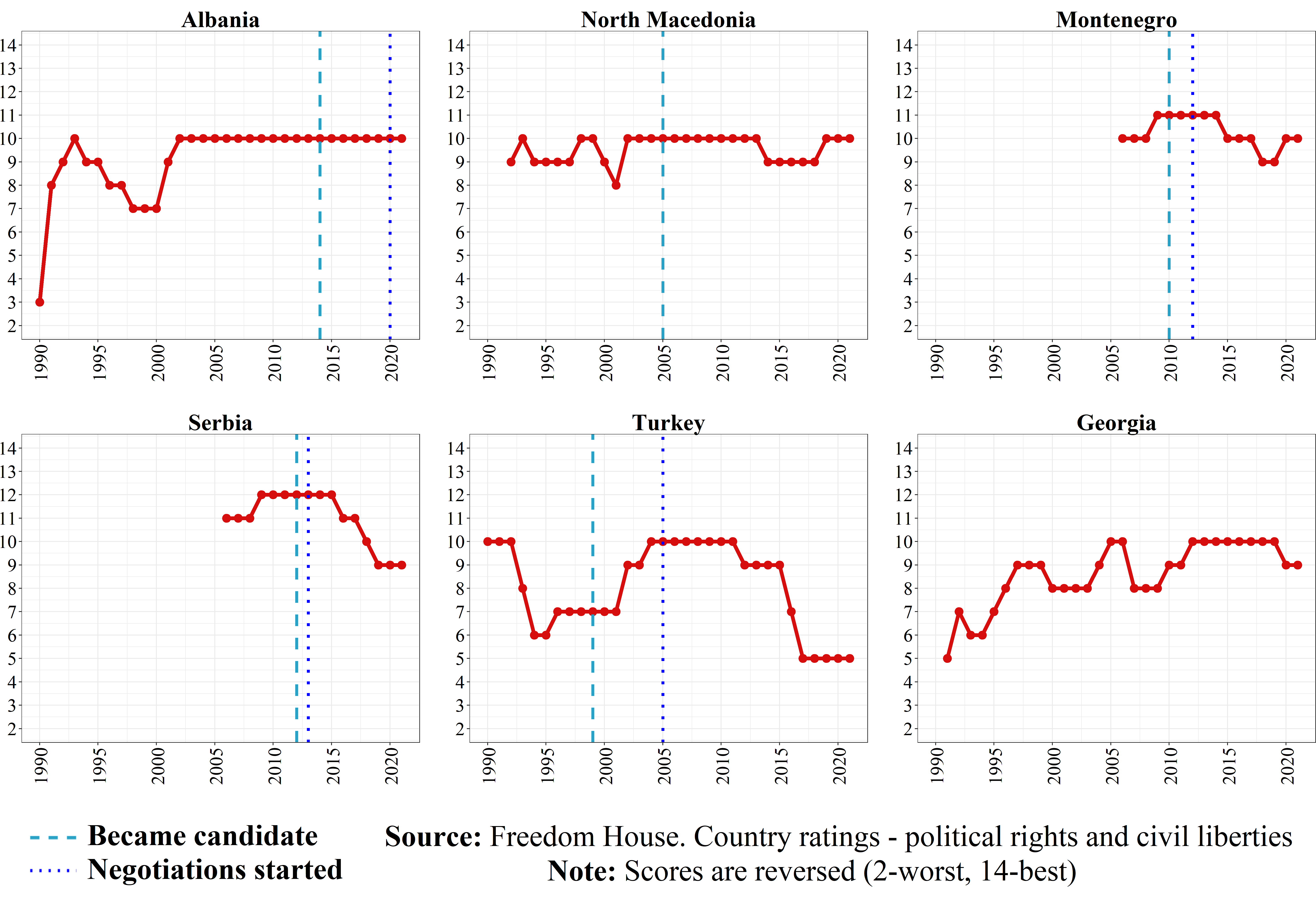
Data from the Varieties of Democracy project (V-Dem) present a different portrait. According to V-Dem’s electoral democracy index, the level of Georgia is more democratic in 2022 than five other countries when they were given candidate status.
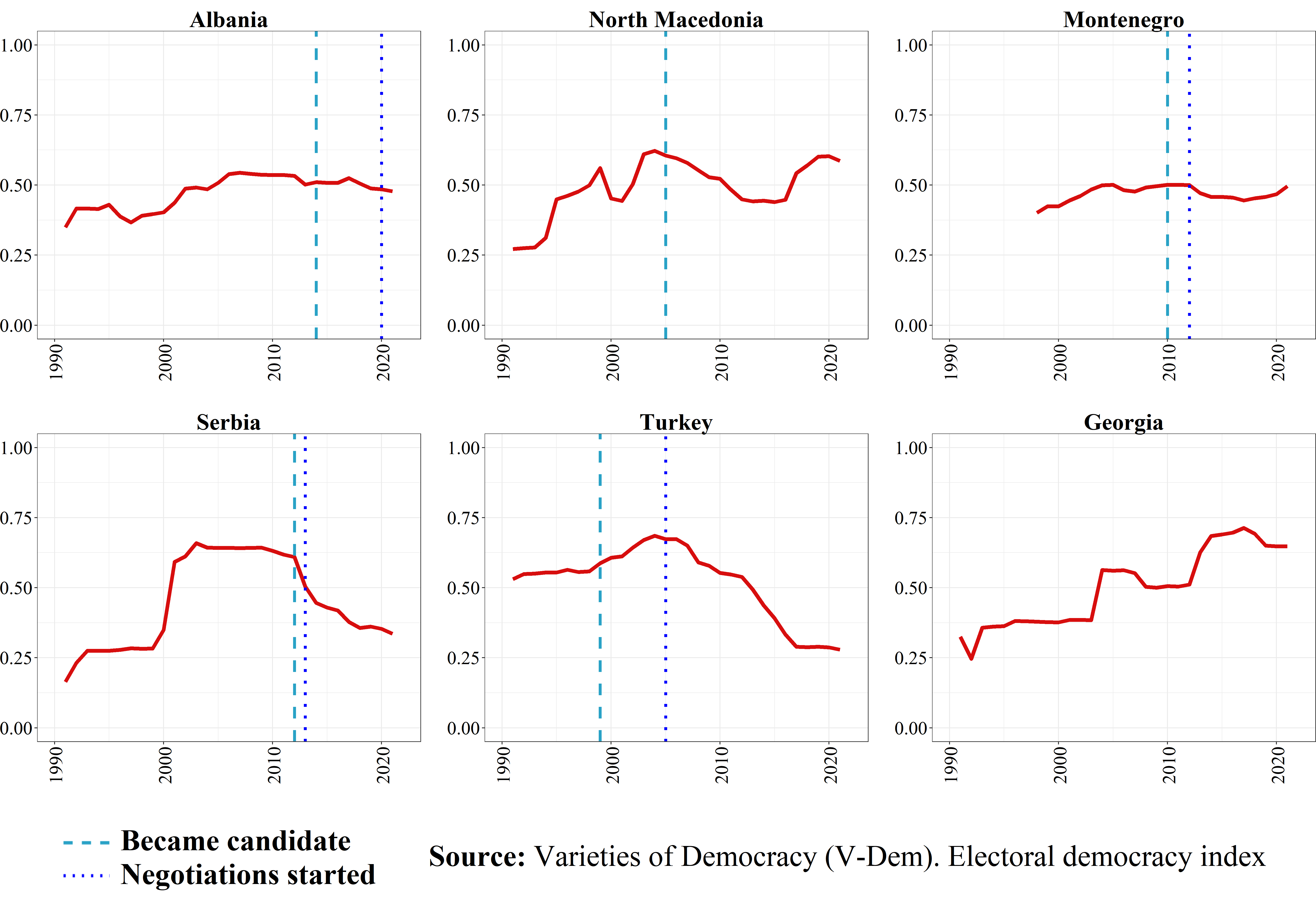
Similarly, the Liberal Democracy Index suggests that Georgia’s democracy in 2022 is stronger than that of Albania, North Macedonia, Montenegro, and Turkey when they were given candidate status.
As for Serbia, its scores on the index when it was granted candidate status in 2012 were the same as Georgia’s in 2022.
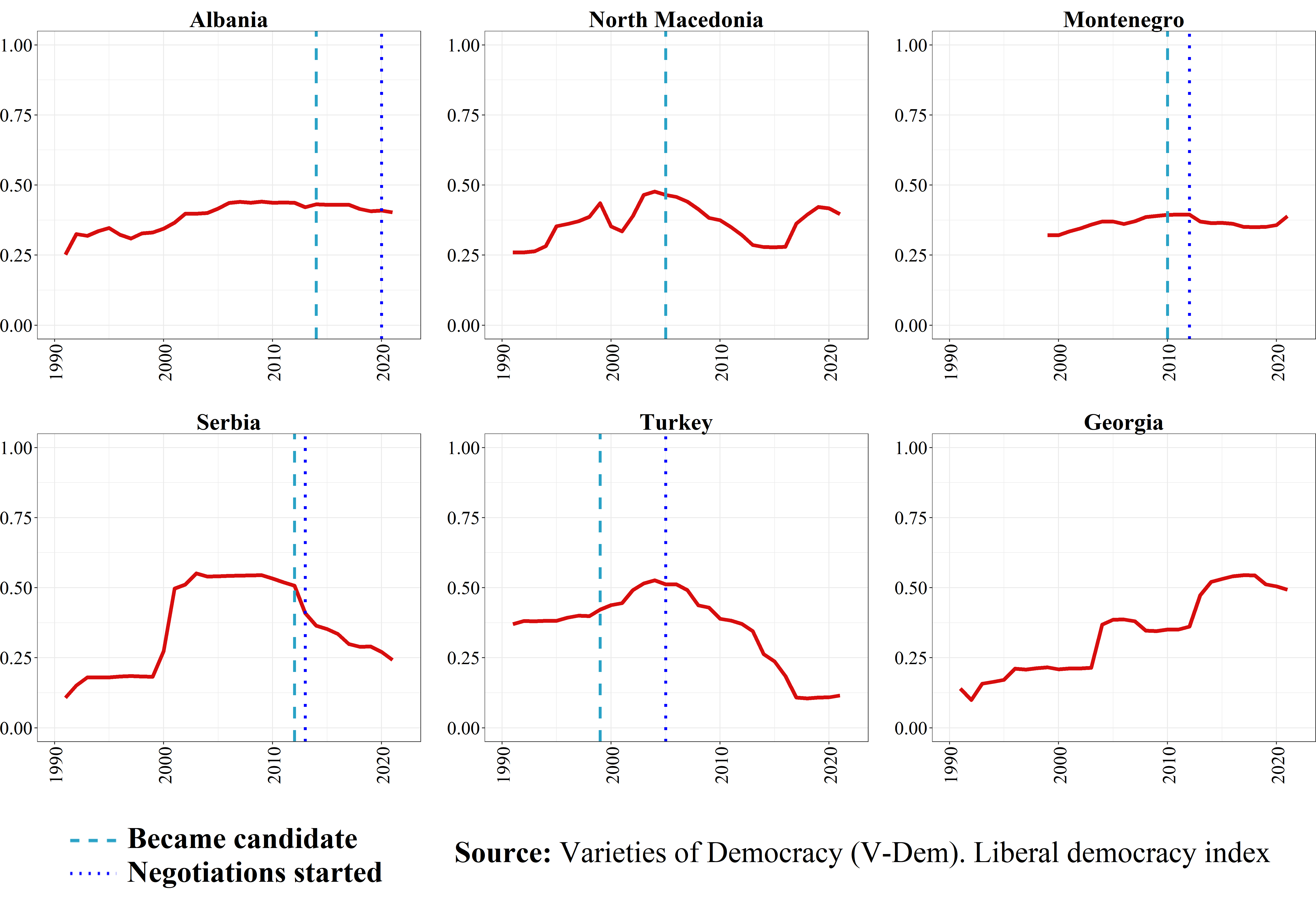
Even though the quality of Georgia’s democracy lags behind EU member states, international democracy indexes suggest that Georgia is as democratic, sometimes more so, than other current candidates when they were granted candidacy status.








